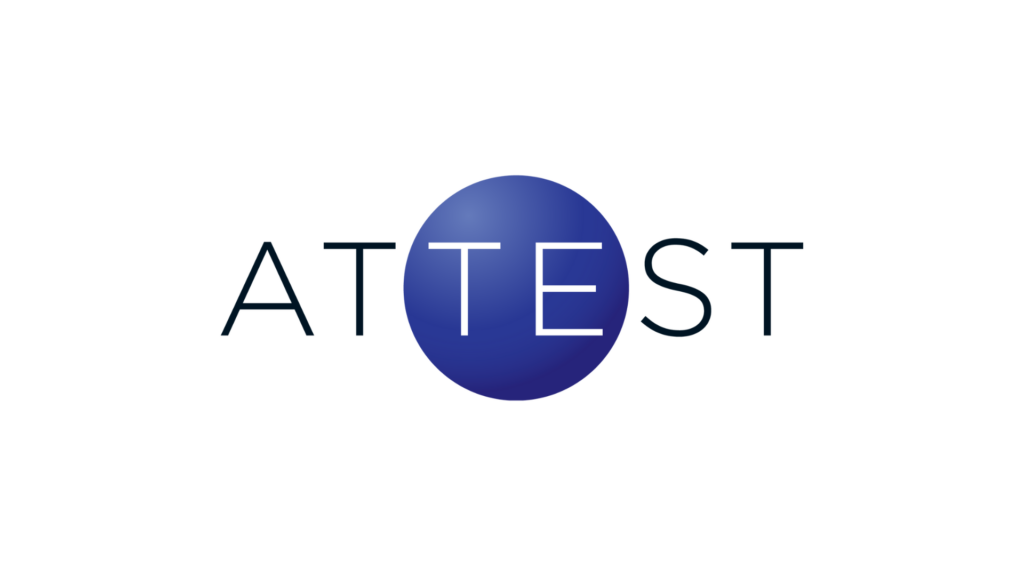Home » How Attest Labs disrupts Metabolic Disease Through Early Diagnosis
How Attest Labs disrupts Metabolic Disease Through Early Diagnosis

“For a startup, I realized IP was going to be important. How do you value a startup in the beginning? IP is an intangible asset but if you have a granted IP right, it’s something that can be assigned value - and frequently is - in transactions like investments.”
David O’Brien, Founder and President, Attest Labs
Attest Labs has developed a magnetic resonance spectroscopy (MRS) system that scans a patient’s thumb to non-invasively determine levels of metabolites like glucose, cholesterol and ethanol in their blood. The device, which is about the size of a coffee can, eliminates the need for finger pricks and the reagents, disposable test strips and sensors that go along with them, as well as the need for single use lances. Its non-invasive nature allows for earlier detection and management of diseases such as diabetes, positioning the company as a disrupter in the field. I recently had the opportunity to talk about the company’s IP with its founder and President David O’Brien.

David is a professional engineer whose prior experience includes a position as an engineering manager at a large tech firm. The impact of IP on a company’s success became clear to David when this employer acquired a smaller company and subsequently found itself involved in IP litigation related to the acquired company’s patents. Luckily, his employer had existing patents that could be used as bargaining chips in the litigation; the company was able to negotiate a patent cross-licensing agreement and settle the lawsuit. David’s belief that IP underpins a company’s success was further reinforced when, shortly after launching Attest Labs, he happened upon an e-book that asserted that the first company to successfully launch a non-invasive metabolite test would be a magnet for IP litigation, as many others have previously attempted to commercialize new technologies in this crowded space. This, coupled with his prior experience, was more than enough to convince David that he needed to make IP one of Attest Labs’ top priorities.
David used prior attempts to harness MRS for non-invasive metabolite testing to his advantage, scouring scientific journal articles and existing patents to help refine his technology, highlighting that “expired patents can be a great source of ideas.” In his experience, peer reviewed journal articles offer a certain level of rigor but can sometimes cover theoretical techniques in search of a practical problem. Patents, on the other hand, may not always be directed to commercially viable technology but they often apply research to problems in more concrete ways. As a result it can be very helpful to review both.
David sought to patent numerous aspects of his technology and chose to start by filing one U.S. provisional patent application that contained several facets of his technology, followed by an international patent application. He underscores the importance of being actively involved in your patent’s prosecution. A patent examiner raised an objection based on a lack of unity (i.e. more than one invention in the patent application) and suggested that the patent be divided into five separate applications. Working with his patent agent, Tony Orsi of Bereskin & Parr, David was able to convince the patent office that there were in fact only three distinct inventions and not five, thereby saving Attest Labs the cost of two additional patent filings and the associated prosecution. David’s careful review of the examiner’s objections also revealed that the examiner likely had a background in magnetic resonance imaging as opposed to magnetic resonance spectroscopy, the technology most relevant to Attest Labs’ device. As a result of this insight, David was able to educate both his patent agent and the patent examiner as to the differences between the two. That process ultimately helped resolve some of the examiner’s objections. David states that as the subject matter expert, a founder’s insights and support during the patenting process are invaluable; had David not been so involved in the patent’s prosecution, it’s unlikely that the outcome would have been as favorable.
He also suggests that founders pay close attention to the claims and the claim strategy when filing patent applications. The claims cover what will be legally protected by the patent, and it can be very helpful to consider the claim strategy with respect to the overall number of claims. Some patent agents will suggest maximizing the claims to cover as many facets of the invention as possible, knowing that even though several will likely be objected to by the patent examiner this strategy may result in a broader scope of coverage in the end. Many countries have excess claim fees, however, and this strategy can be costly. In addition, the rules are different in every country and a strategy that might work well in one jurisdiction may not apply in another. David suggests paying careful attention to what you want to claim and ensuring that your claim strategy aligns with your business strategy. He also highlights that the claims are easier to change than the specification - as long as the claimed subject matter is supported by the specification as originally filed, the claims can be amended, but no new matter can be added to the specification after the patent application is filed.
An additional IP tip that David offers to new founders is to build a team of advisors who preferably have different perspectives on the technology. He suggests that while your patent agent will be able to provide invaluable advice with respect to your IP strategy and dealings with the patent office, having an independent advisor provides an opportunity to get broader input and can also be helpful in understanding the cost implications of a particular IP strategy. Having advisors with different levels of expertise in the technology can also help you identify sections of your patent application that could benefit from further clarification. David was fortunate to have been a tenant in the same co-working space as Aaron Weinroth, a biomedical engineer with expertise in both IP and medical technology, and Aaron continues to be an invaluable Attest Labs advisor.
Having granted IP rights concretizes any startup’s valuation numbers, and David affirms that there are additional reasons why IP is particularly important for medical device companies. Having IP provides a level of assurance in having a protected market space before investing in the regulatory approval process, and having “laid a foundation that protects your IP can be very helpful, for example it can help you get government funding to do trials,” he explains. In addition, in order to obtain funding and regulatory approval, you often have to disclose detailed information about your technology. Filing patents helps protect your technology, and going through the patent application process also helps you think through and refine it. Regulatory approval does provide a barrier to others who want to copy your technology, however David highlights that “companies, especially in very competitive medical spaces, are often very familiar with the regulatory approval process and very well funded, so it might not be a significant barrier; having the right to keep others from practicing your invention is a bigger barrier so IP is needed to protect your technology. You want to create as deep a moat and as high a wall as possible.”
As a final tip for other founders, David states that though IP can be intimidating and requires a significant time commitment, educating yourself, finding good people like Tony and Aaron to work with, and taking things one step at a time can make developing a tailored IP strategy and protecting IP a more manageable undertaking. The resulting IP can be a source of competitive advantage and can also help facilitate discussions with investors and partners.
If you’d like to learn more about IP in order to make the most of your startup’s innovative tech, check out ventureLAB’s IP blog series. ventureLAB clients and alumni also have access to free IP Strategy development support - you can reach out to me at [email protected] to find out more.
About Josée Pharand
Josée is passionate about intellectual property and loves helping founders protect their IP. Before joining ventureLAB she served as a Director for Canada’s Innovation Superclusters Initiative and was responsible for the program’s intellectual property framework. Josée has a Bachelor’s of Applied Science in Mechanical Engineering and spent several years in the private sector before joining the Canadian Intellectual Property Office (CIPO), where she found her true passion in intellectual property and innovation. Highlights of her thirteen years at CIPO include representing the Government of Canada in negotiations on international patent harmonization and working to implement the Patent Law Treaty.
About ventureLAB
ventureLAB is a leading global founder community for hardware technology and enterprise software companies in Canada. Located at the heart of Ontario’s innovation corridor in York Region, ventureLAB is part of one of the biggest and most diverse tech communities in Canada. Our initiatives focused on raising capital, talent retention, commercializing technology and IP, and customer acquisition have enabled thousands of companies to create over 4,500 jobs and raise more than $250 million in investment capital. At ventureLAB, we grow globally competitive tech titans that build-to-scale in Canada, for global markets.
VentureLAB
https://www.venturelab.ca/
ventureLAB is a leading global founder community for hardware technology and enterprise software companies in Canada. Our organization is led by seasoned entrepreneurs and business leaders with decades of industry experience in building IP-rich start-ups, scale-ups, and global multinationals to help you scale your business. Located at the heart of Ontario’s innovation corridor in York Region, ventureLAB is part of one of the biggest and most diverse tech communities in Canada. We enable technology startups to accelerate the commercialization of transformational products on a global scale.


